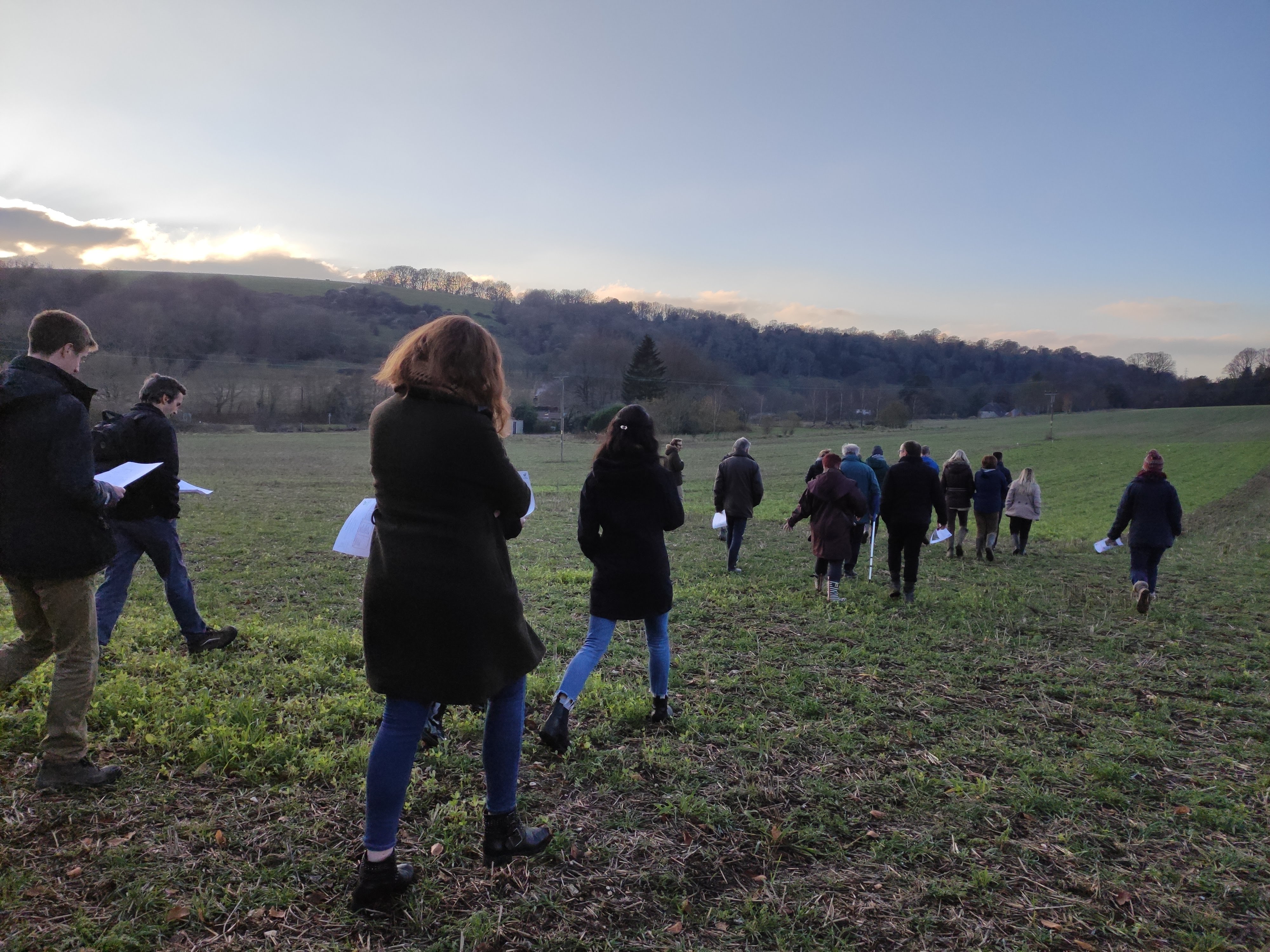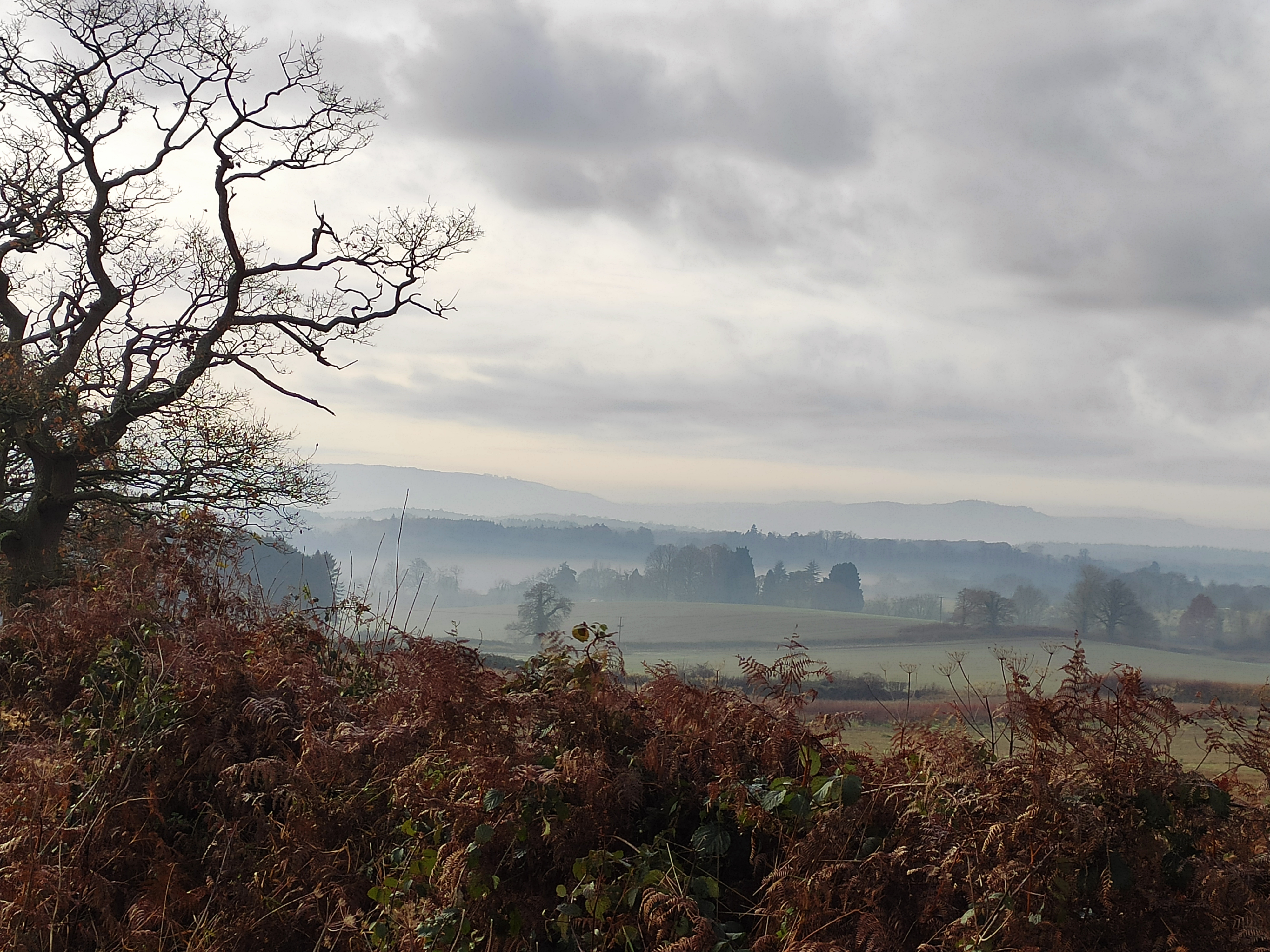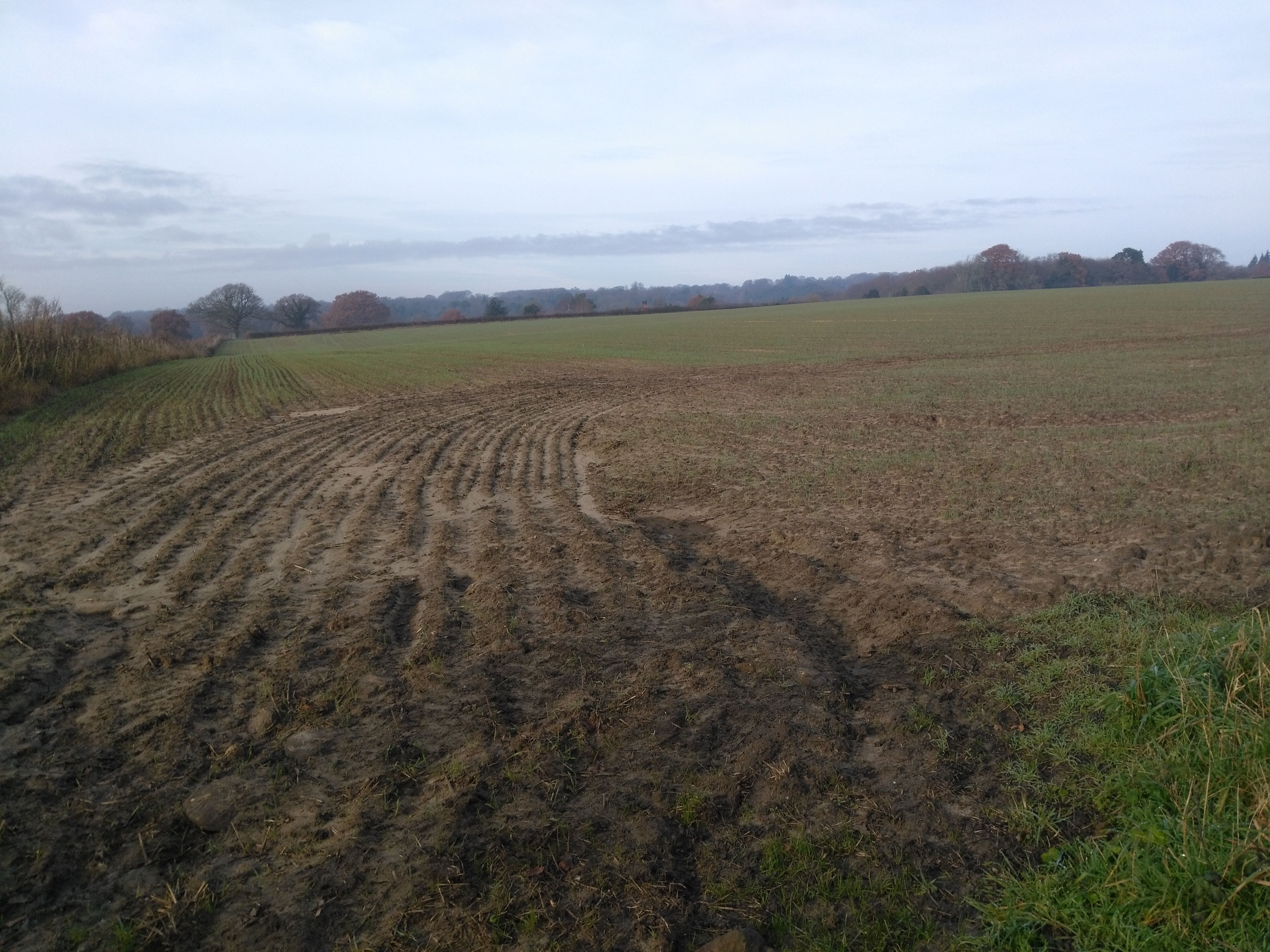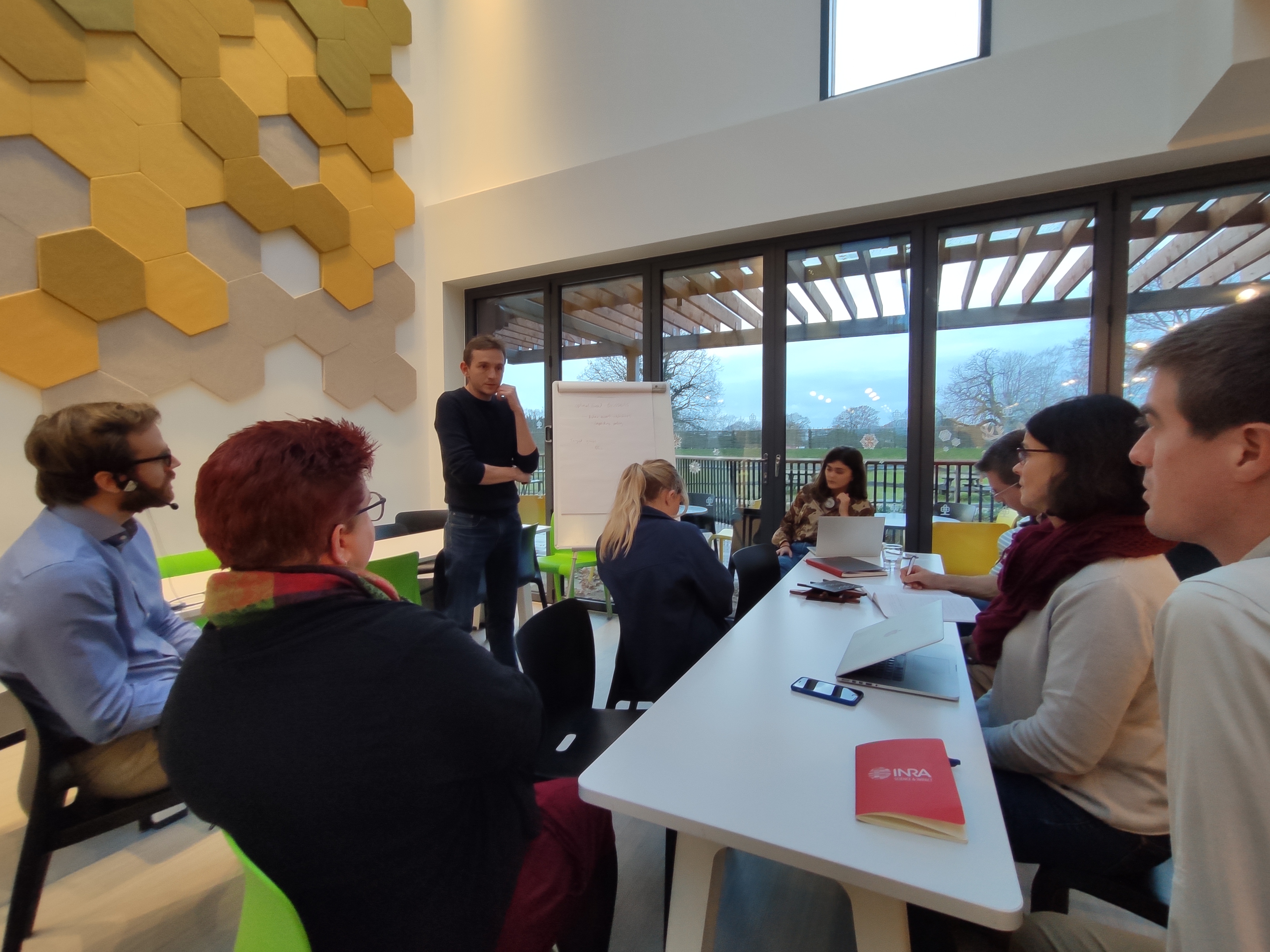The bi-annual meeting of the Interreg Channel Payments for Ecosystem Services (CPES) project was held on December the 4th and 5th 2019 just outside of Chichester, at the Aldingbourne Trust.
Day one

The morning started with the project steering meeting, led by Dawn Robins (lecturer and research coordinator at the University of Chichester). She reminded us of the major deadlines to come before the end of the project, which is scheduled for December 2020, as well as the deliverables and the major stages of the project. The rest of the morning was devoted to presenting progress in each of the six case-studies, their synergies, complementarities and differences.
In the afternoon, we visited Chilgrove Farm, located north of Chichester and nestled in the hilly countryside of the Souths Downs. Agricultural engineers highlighted the techniques of plant cover used on the experimental plots to reduce losses of nitrate by leaching.
Day two

The second day started with a field visit to the Woolbeding farm (West Sussex - England). This farm is in the heart of the South Downs National Park and is home to many invertebrates and provides habitat for rare bird species. We were able to observe the sandy nature of the soils and their erosion problems.

The afternoon was an opportunity to discuss the technical aspects of the project in terms of data, economic, legal and communication arrangements.
Payments for ecosystem service schemes aim to link payments from downstream water users, who are impacted by poor water quality, to upstream farmers to promote more water friendly practices. The CPES project aims to highlight the way that PES schemes can attract interest and funding from a wide range of stakeholders and therefore be more effective than current agri-environment schemes at achieving good water quality. It is therefore important to ensure we have data at the watershed scale to support this key message and make the results more meaningful. In this session partners shared details and discussion on their own approaches to gathering this supporting data. It was also suggested that a common set of indicators should be defined and monitored so that the results of the different case-studies are comparable.
The work carried out through CPES will identify the areas of the political and legal frameworks in France and England, that can be modified to accommodate PES and guarantee fairer agreements for farmers and companies. In this session we agreed on a complementary approach to the way the economic impacts of these agreements will be assessed. This will ensure that, even if the political and legal frameworks are different from one country to another, the approach to assessment remains broadly consistent and the costs and benefits of agreements transparent.
The two days ended with an informative and fun activity offered by Dawn Robins. In order to construct working groups for the year 2020, we divided up into operational workshops on the organization of final events and the toolbox. After this the partners departed with a newfound sense of motivation for the tasks that lay ahead in the final year of the project.

As during each joint meeting of the CPES project, the objectives assigned to the meeting - to pool the work of the project partners and consolidate them, decide on future activities at the scale of the overall project - were all achieved and everyone was able to return in his motivated and energetic pilot study to continue the work.
VIDEO: Better soil for farmers means less agricultural runoff and therefore better quality water.
Watch the video filmed during the field visit to Woolbeding (district of Chichester in West Sussex in England).


